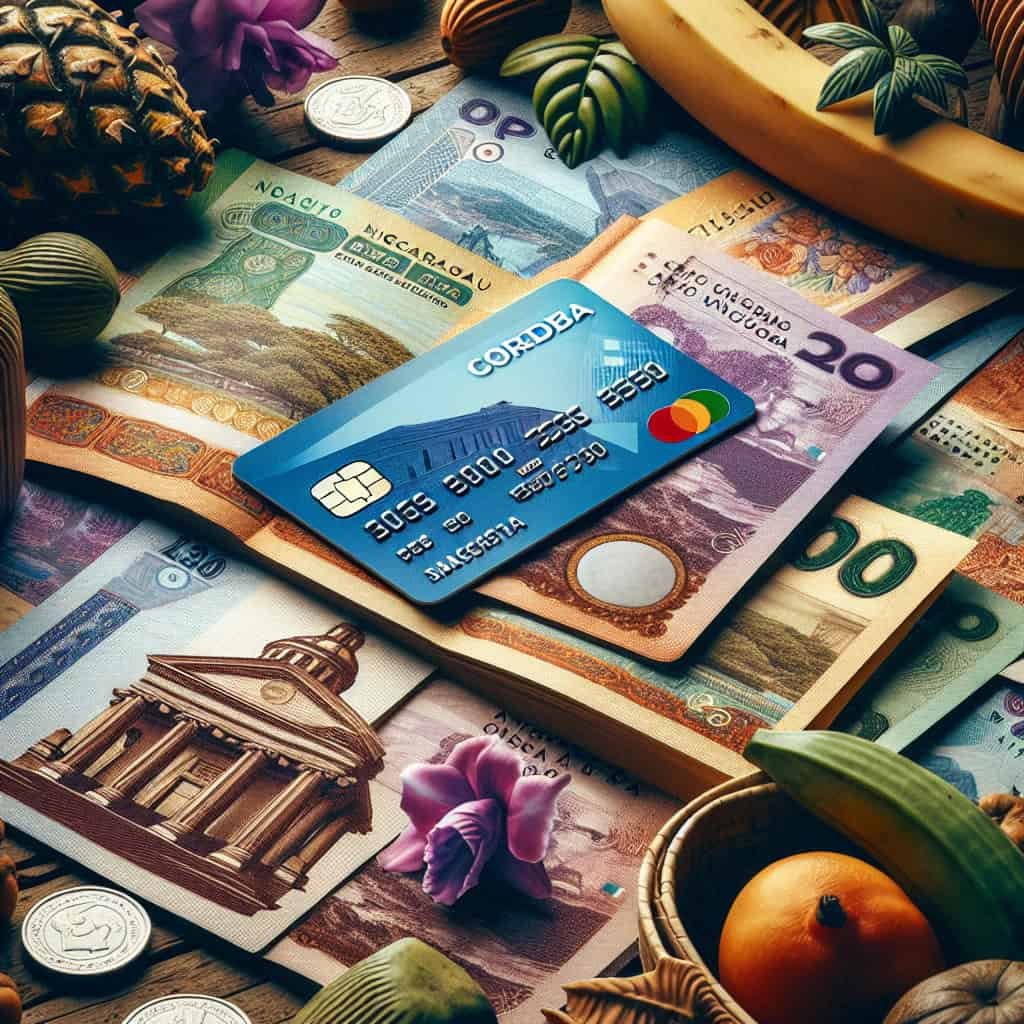Nicaragua is a captivating country with a rich culture and breathtaking landscapes. If you’re planning a visit, it’s essential to familiarize yourself with the currency used and the ease of using credit cards. So, what currency do you need to carry in your wallet while exploring this Central American gem, and can you rely on your trusty credit card to make purchases? Let’s uncover the answers to these questions and ensure you have a smooth and worry-free experience during your Nicaraguan adventures.

Currency in Nicaragua
Nicaragua, a beautiful country in Central America, has its own official currency known as the Nicaraguan Cordoba (NIO). In this article, we will take a closer look at the currency, its exchange rates, availability of currency exchange facilities, accepted currencies, and the use of credit cards in Nicaragua.
Official Currency
The official currency of Nicaragua is the Nicaraguan Cordoba (NIO). This is the legal tender for all transactions within the country. It is important to have some Cordobas with you when traveling to Nicaragua as many businesses and establishments prefer to be paid in the local currency.

Exchange Rate
The exchange rate between the Nicaraguan Cordoba and other foreign currencies can often fluctuate. It is advisable to check the current exchange rate before your trip to ensure that you are getting the best value for your money. You can find the exchange rate in banks, currency exchange offices, or online platforms that provide real-time currency conversion information.
Availability of Currency Exchange
Currency exchange facilities in Nicaragua can be found in various locations such as banks, ATMs, and currency exchange offices. These facilities allow you to convert your foreign currency into Nicaraguan Cordobas. It is important to note that some smaller towns or remote areas may have limited currency exchange options, so it is advisable to exchange your money in larger cities or before traveling to these areas.

Accepted Currencies
While the official currency in Nicaragua is the Nicaraguan Cordoba (NIO), some businesses and establishments may accept major foreign currencies such as the United States Dollar (USD). However, it is recommended to have local currency on hand for most transactions, especially in smaller towns or rural areas where accepting foreign currency may not be common.
Nicaraguan Cordoba (NIO)
Overview of Nicaraguan Cordoba
The Nicaraguan Cordoba, also known as the Cordoba Oro, is the official currency of Nicaragua. It is named after Francisco Hernández de Córdoba, a Spanish conquistador who founded Nicaragua. The currency is issued in the form of coins and banknotes.
Coins and Banknotes
The Nicaraguan Cordoba is divided into 100 centavos. Coins are available in denominations of 5, 10, 25, and 50 centavos, as well as 1, 5, and 10 Cordobas. Banknotes are commonly found in denominations of 10, 20, 50, 100, 200, and 500 Cordobas. It is important to familiarize yourself with the appearance and denominations of the banknotes to ensure you are using the correct currency.
Currency Symbol
The currency symbol for the Nicaraguan Cordoba is C$. It is often used to indicate prices or amounts in Cordobas. You may come across prices written as C$100, which means 100 Cordobas.

Exchange Rates
Official Exchange Rate
The official exchange rate between the Nicaraguan Cordoba and other currencies is determined by the Banco Central de Nicaragua (Central Bank of Nicaragua). This rate may vary slightly from the rates offered in banks or currency exchange offices, so it is always a good idea to compare rates and choose the most favorable option.
Currency Exchange Methods
There are several methods for exchanging currency in Nicaragua. Banks are a popular choice, as they offer competitive rates and a safe environment for currency exchange. Currency exchange offices are also available and can be found in major cities and tourist areas. Additionally, some ATMs allow you to withdraw local currency using your foreign debit or credit card, although fees may apply.
Tips for Exchanging Currency
When exchanging currency in Nicaragua, it is important to consider a few tips to ensure a smooth and cost-effective experience. Firstly, compare exchange rates offered by different banks or exchange offices to get the best value for your money. Keep in mind that exchange rates may vary, so it is worthwhile to check rates beforehand. Secondly, avoid exchanging money at unlicensed or street vendors, as you may encounter counterfeit currency or unfair rates. Finally, it is advisable to carry smaller denominations of Cordobas for daily expenses, as some businesses may not have change for larger bills.
Currency Exchange Facilities
Banks
Banks in Nicaragua are a reliable and secure option for currency exchange. They often offer competitive rates and have branches located in major cities and tourist areas. When visiting a bank for currency exchange, it is important to bring your passport for identification purposes. Some banks may also require you to fill out a simple form before exchanging your money.
ATMs
ATMs are widely available in Nicaragua and can be found in major cities, towns, and tourist areas. They offer a convenient way to withdraw local currency using your debit or credit card. However, it is essential to notify your bank or credit card provider about your travel plans to avoid potential issues with card usage abroad. Keep in mind that ATMs may charge a fee for foreign card transactions, so it is advisable to withdraw larger amounts to minimize additional charges.
Currency Exchange Offices
Currency exchange offices, also known as casas de cambio, can be found in major cities and tourist areas. They specialize in currency exchange and offer competitive rates. It is important to ensure that the exchange office you choose is licensed and reputable. Look for signs indicating that the establishment is authorized by the government or affiliated with reputable banking institutions.

Credit Cards in Nicaragua
Acceptance of Credit Cards
Credit cards are widely accepted in Nicaragua, especially in larger cities, tourist areas, and upscale establishments. Major credit card networks such as Visa, Mastercard, and American Express are commonly accepted. However, it is always advisable to carry some cash or the local currency with you, as smaller businesses and rural areas may prefer cash payments.
Popular Credit Card Networks
Visa, Mastercard, and American Express are the most widely accepted credit card networks in Nicaragua. These networks offer a global reach and are accepted in numerous establishments, including hotels, restaurants, shops, and car rental agencies.
Credit Cards vs. Cash
When traveling to Nicaragua, it is important to consider the advantages and disadvantages of using credit cards versus cash. Credit cards provide convenience and security, as they eliminate the need to carry large amounts of cash. They also offer additional benefits such as rewards, fraud protection, and the ability to track expenses. However, cash can be useful in situations where credit cards are not accepted or in places with unreliable card machines. It is always advisable to have a combination of both for flexibility.
Major Credit Card Providers
Visa
Visa is one of the largest credit card networks globally and is widely accepted in Nicaragua. Visa cards are accepted at various establishments including hotels, restaurants, shops, and ATMs. Visa offers a range of credit cards with different benefits and rewards, so you can choose the one that best suits your needs.
Mastercard
Mastercard is another major credit card provider accepted in Nicaragua. Like Visa, Mastercard offers a wide range of credit cards with various benefits and rewards. Mastercard is accepted at numerous establishments globally, providing convenience and flexibility for travelers.
American Express
American Express, often referred to as Amex, is accepted in Nicaragua but may have slightly lower acceptance rates compared to Visa and Mastercard. However, it is still widely accepted at upscale establishments such as luxury hotels, fine dining restaurants, and high-end retailers. American Express offers a range of premium credit cards that provide exclusive benefits and rewards.
Using Credit Cards in Nicaragua
Credit Card Acceptance by Businesses
In Nicaragua, many businesses, especially those in larger cities and tourist areas, accept credit cards as a form of payment. Hotels, restaurants, and shops commonly accept credit cards, making it convenient for travelers. However, it is advisable to carry cash or local currency for smaller establishments, street vendors, or rural areas where credit card acceptance may be limited.
Cash Advances
Some credit cards may offer the option of cash advances, allowing you to withdraw cash from ATMs using your credit card. It is important to note that cash advances typically come with additional fees and higher interest rates than standard credit card purchases. Before opting for a cash advance, it is recommended to familiarize yourself with the terms and conditions of your credit card provider.
Foreign Transaction Fees
When using credit cards in Nicaragua, it is essential to be aware of potential foreign transaction fees. These fees are charged by your credit card provider for transactions made in a foreign currency or in a country outside your home country. The fees are usually a percentage of the transaction amount and can vary between credit card providers. It is advisable to check with your credit card provider regarding their foreign transaction fees before your trip.
Safety Tips for Credit Card Usage
Notify Your Bank or Credit Card Company
Before traveling to Nicaragua, it is important to notify your bank or credit card company about your travel plans. This can help prevent any issues or temporary card blocks due to suspicious activity. Informing them of your destination and travel dates will ensure that your credit card remains active and usable during your trip.
Keep an Eye on Your Card
While credit cards are a convenient payment method, it is important to keep an eye on your card at all times. Be cautious of your surroundings and avoid situations where your card could be easily stolen or compromised. It is advisable to keep your card in a secure wallet or pouch when not in use and never leave it unattended.
Use ATMs in Secure Locations
When withdrawing cash from ATMs, it is recommended to use machines located in secure and well-lit areas. Avoid using ATMs that appear suspicious or located in isolated areas. It is also advisable to shield the keypad when entering your PIN to protect your personal information from potential fraudsters.
Alternatives to Credit Cards
Debit Cards
Debit cards are a convenient alternative to credit cards for accessing funds in Nicaragua. They allow you to withdraw cash directly from your bank account at ATMs. However, it is important to notify your bank about your travel plans to avoid any issues with your debit card usage abroad. Additionally, some ATMs may charge a fee for foreign card withdrawals, so it is advisable to withdraw larger amounts to minimize additional charges.
Traveler’s Checks
Traveler’s checks, although less popular in recent years, can still be used as an alternative to credit cards in Nicaragua. They offer security as they can be replaced if lost or stolen, and they are widely accepted at banks and major hotels. However, it is important to note that traveler’s checks may not be accepted in all establishments, especially smaller businesses or remote areas.
Cash
Carrying cash in the local currency, Nicaraguan Cordobas, is a practical option for daily expenses in Nicaragua. It is accepted in most establishments, especially in smaller towns and rural areas where credit card acceptance may be limited. Keep in mind that it is advisable to carry smaller denominations of Cordobas to have change available for smaller purchases.
Conclusion
When visiting Nicaragua, it is important to understand the currency used, the availability of currency exchange facilities, and the acceptance of credit cards. The official currency of Nicaragua is the Nicaraguan Cordoba (NIO), which can be exchanged at banks, ATMs, and currency exchange offices. While credit cards are widely accepted in larger cities and tourist areas, it is advisable to carry cash or local currency for smaller establishments or rural areas. By considering the various options for currency exchange and credit card usage, you can have a convenient and hassle-free experience when managing your finances in Nicaragua.
